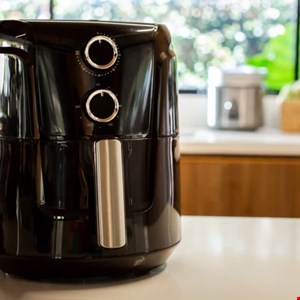Deng Xiaoping was still the Chairman of the Central Military Commission and that's where the real authority truly lies, because he who controls the guns controls the party.
Not according to Party rules. The roles of Chairman of the CMC and Party Secretary show a division of power, albeit they can be held by the same person. The Standing Committee has always been the top decision-making body. In 1989 neither the Chairman of the CMC nor the Party Secretary had the right to overrule it.
Had the Standing Committee voted first to declare martial law, Deng may then have had the right to decide how to deal with the situation over any objections from Zhao Ziyang and other doves. But he acted in reverse, deciding military action was required and then fixed a Standing Committee vote in a way that was unlawful.
Do you really think that mere rules would concern Deng, Xi, Mao, or others within a CCP Politburo.
You're sort of making my point. Rules give legitimacy, and the CCP has always maintained it acted appropriately. If Deng could have simply declared martial law as Chairman of the CMC, he wouldn't have needed to stack the Standing Committee with his puppets. Perhaps he could have just done with the formalities, but he didn't.
His actions are highly ironic. In trying to legitimise suppression of the students by having a vote first, he did so by a method that was unlawful by Party rules. I guess this is one further reason why the CCP is still unwilling to talk about the truth of what happened, because it would require admitting that Deng - one of the pillars of the modern Party - acted in a way that contravened the Party's rules. Admitting a much larger death toll and deliberate murder would be bad enough, but holding a palace coup to do it would be even worse.
because if the Commanders did that they would have forfeited their lives and possibly the lives of their families
I'm quite willing to believe what I read because much of the general public (at least in the main cities) seemed to be behind the students. Ordinary Beijing residents were on the streets with them, albeit they may have been some of the first to leave so were less likely to be caught up in the killings. Sometimes soldiers can be murderous killing robots, but other times they can have consciences - see the Romanian Revolution and how quickly sections of the military turned against Ceaușescu.
In this case parts of the PLA weren't even trying to oust the government, they were just refusing to use deadly force. Perhaps I could have been clearer. I haven't read anything to say the PLA in Beijing mutined, rather that they came up with excuses to not go in guns blazing. I've tweaked my previous post accordingly.
The suppression of the students wasn't popular at the time, and the CCP didn't try to draw attention to it. Rather than conduct a Mao-style purge, the Party did its best to forget about the event, focusing instead on economic growth. The deaths were downplayed and bar the student leaders, most people were able to get on with their lives. Zhao Ziyang was not put on trial - the Party leadership didn't dare - and was kept at home under "house arrest" instead. Wen Jiabao was able to become Prime Minister. So it's not surprising that disobedient military leaders weren't executed, because doing so would have reopened wounds that hadn't even begun to heal. They might have even been allowed to retire with their pensions.
So if you have a reputable, reliable, and verifiable source for your claims I suggest that you share it. I am always happy to learn something new.
Sure. Try
The Tiananmen Papers, edited by Andrew Nathan and Perry Link, as well as Zhao Ziyang's memoirs
Prisoner of the State.


